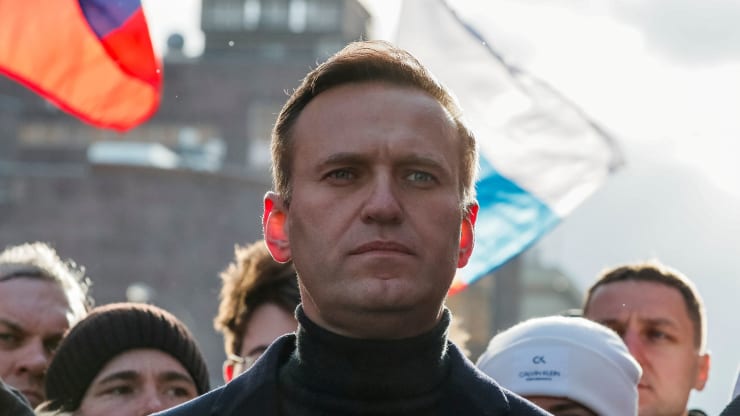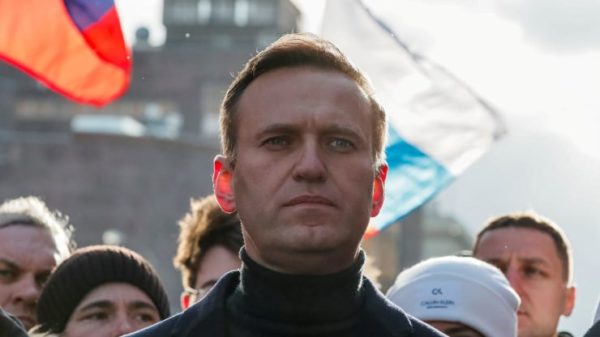- The 44-year-old foe of Russia’s President Vladimir Putin felt unwell on a flight back to Moscow from Tomsk, a city in Siberia, Kira Yarmysh said on Twitter.
- “The plane made an emergency landing in Omsk. Alexei has a toxic poisoning,” Yarmysh tweeted.
Russian opposition politician Alexei Navalny is in a coma and on a ventilator in a hospital intensive care unit after falling ill from suspected poisoning that his allies believe is linked to his political activity.

The 44-year-old foe of Russia’s President Vladimir Putin felt unwell on a flight back to Moscow from Tomsk, a city in Siberia, and was taken to a hospital after the plane made an emergency landing in Omsk, Navalny’s spokeswoman Kira Yarmysh said on Twitter.
“He is in a coma in grave condition,” she said on Twitter.
She also told the Echo Moskvy radio station that during the flight Navalny was sweating and asked her to talk to him so that he could “focus on a sound of a voice.” He then went to the bathroom and lost consciousness.
Yarmysh said the politician must have consumed something from tea he drank at an airport cafe before boarding the plane early Thursday.
“Doctors are saying the toxin was absorbed quicker with hot liquid,” she tweeted, adding that Navalny’s team called police to the hospital.
Anatoliy Kalinichenko, deputy chief doctor of the Omsk hospital where the politician is being treated, told reporters that Navalny was in grave, yet stable condition. Kalinichenko said doctors are considering a variety of diagnosis, including poisoning, but refused to give details, citing a law preventing doctors from disclosing confidential patient information.
State news agency Tass reported that police were not considering deliberate poisoning, citing an anonymous source in law enforcement who said “it is not unlikely that he drank or consumed something yesterday himself.”
Yarmysh on Twitter bristled at that suggestion: “Of course. It’s just the tea was bad. This is what the state propaganda is going to do now — yell that there was no deliberate poisoning, he (did something) accidentally, he (did something) himself.”
Last year, Navalny was rushed to a hospital from prison where he was serving a sentence following an administrative arrest, with what his team said was suspected poisoning. Doctors then said he had a severe allergic attack and discharged him back to prison the following day.
Navalny’s Foundation for Fighting Corruption has been exposing graft among government officials, including some at the highest level. Last month, he had to shut the foundation after a financially devastating lawsuit from Yevgeny Prigozhin, a businessman with close ties to the Kremlin.
Belarus’ authoritarian President Alexander Lukashenko accused Navalny last week of organizing unprecedented mass protests against his re-election that have rocked Russia’s ex-Soviet neighbor since Aug. 9. He did not, however, provide any evidence and that claim was one of many blaming foreign forces for the unrest.
Like many other opposition politicians in Russia, Navalny has been frequently detained by law enforcement and harassed by pro-Kremlin groups. In 2017, he was attacked by several men who threw antiseptic in his face, damaging one eye.
The most prominent member of Russia’s opposition, Navalny campaigned to challenge Putin in the 2018 presidential election, but was barred from running.
He set up a network of campaign offices across Russia and has since been putting forward opposition candidates in regional elections, challenging members of Russia’s ruling party, United Russia. One of his associates in Khabarovsk, a city in Russia’s Far East that has been engulfed in mass protests against the arrest of the region’s governor, was detained just last week after calling for a strike at a rally.
In the interview with Echo Moskvy, Yarmysh said she believed the suspected poisoning was connected to this year’s regional election campaign.
Vyacheslav Gimadi, a lawyer with Navalny’s foundation, said the team is requesting Russia’s Investigative Committee open a criminal probe.
“There is no doubt that Navalny was poisoned because of his political stance and activity,” Gimadi said in a tweet on Thursday.
Navalny is not the first opposition figure to come down with a mysterious poisoning. In 2018, Pyotr Verzilov, a member of Russia’s protest group Pussy Riot, ended up in an intensive care unit after a suspected poisoning and had to be flown to Berlin for treatment. Opposition activist Vladimir Kara-Murza was hospitalized with poisoning symptoms twice — in 2015 and 2017. Both said they believed they were poisoned for their political activity.
CNBC


Leave a Reply
You must be logged in to post a comment.